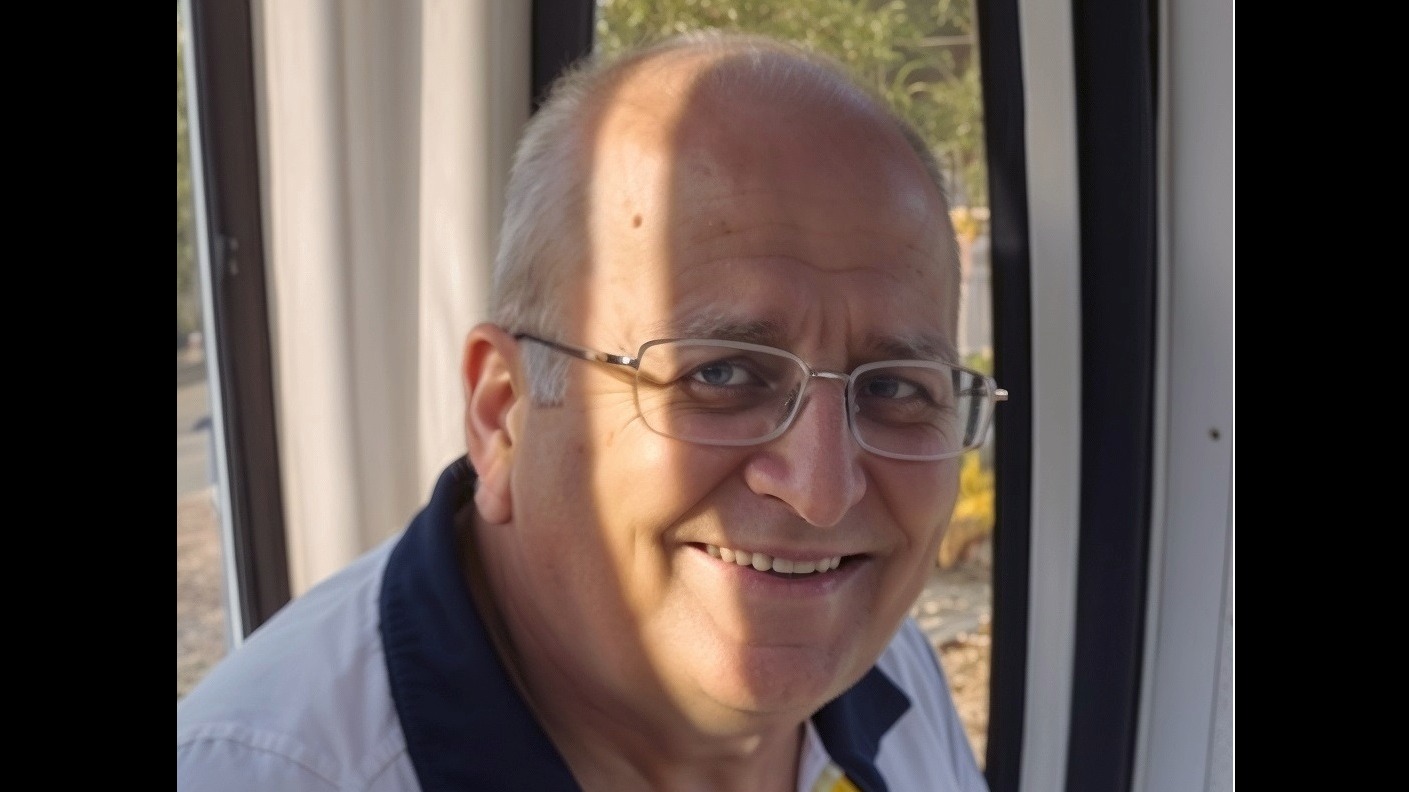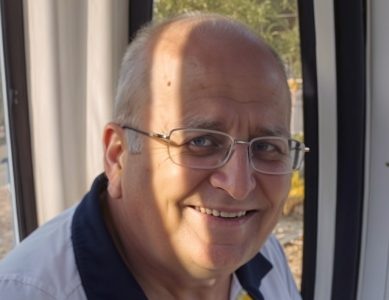It’s been a little over four months since our beloved Rafiq Mustafa Al-Hariri passed, whom my grandfather called the devoted son.
I observed in some cultures, people tend to build splendid verbal monuments with their feelings where the recipient is so overwhelmed by those outpouring expressions of kindness and support until he utters those four magic words: “I need your assistance.” Then the shock and disappointment ensue as he watches them disintegrate in seconds. Those reassuring commitments have a subtle underlying proviso – I am your friend, even your brother, as long as you need nothing, ask for nothing, have no expectations of me whatsoever. It was really your fault for not realizing that when you were the subject of such underserved praise spoken in one single breath like a waterfall, you have mistaken utterances for sincerity.
At the very opposite end of that spectrum was uncle Rafiq, as our entire family of various ages called him. Since I don’t possess the sophisticated vocabulary or eloquence necessary to describe the kind of man he was, the many virtues of his character, I’ll have to borrow much of it from David Brooks, who has given great thought to the subject in his books The Road to Character and The Second Mountain. He wrote in the former: “I wrote this book not sure I could follow the road to character, but I wanted at least to know what the road looks like and how other people have trodden it.”
Our family, Al-Abbassi on my mother’s side, have known the Hariri’s for generations. The relationship goes back to a time before1948 in Haifa where my grandfather, Mohammed Mustafa Al – Abbassi, forged a friendship with uncle Rafiq’s father, Mustafa Al-Hariri, may they rest in peace. Then there is a big gap in the story of how their paths crossed once again in Jordan after many turbulent political circumstances in the Arab World, which led them both to relocate. My grandfather moved to Syria then Lebanon before finally settling in Jordan.
When Mustafa Al-Hariri died, my grandfather, early in the morning on the first day of every Eid, prioritized a visit to the cemetery where he placed flowers on his grave, those of his friends and loved ones, and prayed for their departed souls. This private ritual was maintained till the final years of his life, well into his late eighties, until he could barely walk. From there, he would visit his neighbors and friends who would join him in going from one house to another.
In my late teenage years and after one of his visits to the cemetery, he was paid a visit by uncle Rafiq. He was overjoyed to see his old dear friend’s son. My grandfather was a serious man who possessed a unique mastery of economy of emotional expression, but I could almost hear his face light up with a great big smile as he greeted him. After he left, I overheard him tell my grandmother: “Mr. Rafiq told me that every time he visited his father’s grave, he would see flowers placed upon it. When he asked the graveyard keeper, he was told about my visits, so he wanted to thank me”. That was the beginning once again of another deep friendship. He was the only man that my grandfather called a son other than his own.
Over the years, every second day of Eid between 1000 and 1200, if our doorbell rang, everyone in the house knew it was uncle Rafiq. On 21st March 2008, when my grandfather passed away at 91, uncle Rafiq went down into the grave and laid him there in his final resting place. It seems to me now that the title “devoted son” came to him rather intuitively. Their story is not of souls meeting on earth for the very first time but of souls reuniting. Reunited souls are inexplicably devoted to one another, joined by an invisible chord, forever inseparable through physical space and time.
The friendship that uncle Rafiq maintained extended to every person in our family whom he knew by name, sons, daughters, and grandchildren. In our modern societies and communities where we are in such need of kindness and healing, these three extraordinary men remind us, as David Brooks wrote in The Second Mountain that: “a community is healthy when relationships are felt deeply, when there are histories of trust, a shared sense of mutual belonging, norms of mutual commitment, habits of mutual assistance, and real affection from one heart and soul to another.”
Uncle Rafiq was my first mentor whom I observed in my early twenties give so lovingly and generously of himself to everyone. He always lifted others and spoke of their positive qualities as if they were saints, never speaking of his own. I frequently wondered if he had ever realized what an exceptional human being he was. Despite the senior positions he occupied in his life, we could only see the man’s character. It was so much greater than any position he could have held. His greatness was from within, it was not borrowed.
In The Road to Character, David Brooks wrote about people who seem to possess such an impressive inner cohesion “…..they perform acts of sacrificial service with the same modest everyday spirit they would display if they were just getting the groceries. They are not thinking about what impressive work they are doing. They are not thinking of themselves at all.”… “They have not led lives of conflict-free tranquility but have struggled toward maturity. They have gone some way toward solving life’s essential problem, which is that, as Aleksander Solzhenitsyn put it, “the line separating good and evil passes not through states, nor between classes, nor between political parties either – but right through every human heart.””
A long time ago, I used to ask some of my closest friends a question that I think now reflected my immaturity. I used to ask: “Are you happy?”. Unfortunately, in some establishments, we try to pass on that one should pursue happiness in their lives instead of meaning, career goals instead of a vision for their lives. If we set out to pursue happiness in our lives, we are bound to be disappointed and feel empty, but if we invest in creating meaning, that’s a journey much more worthy of human endeavor.
In The Road to Character: “career questions – what do I want from life? What can I do to make myself happy? – are not the right questions. The real question is, what does life want from me? What are my circumstances calling me to do? In this scheme of things, we don’t create our lives; we are summoned by life. What does this environment need to be made whole? What is it that needs repair? What tasks are lying around waiting to be performed? As the novelist Frederick Buechner put it,” at what points do my talents and deep gladness meet the world’s most profound need?”” Uncle Rafiq seemed to have those questions figured out.
Because of the lockdown, I didn’t get the chance to see him until approximately 3 weeks before he died. He was in great physical pain, yet he made an effort to make conversation and laughed with us. I was so happy to see him, not realizing that it would be for the very last time. I’ll always be grateful to his son, our dear friend Maher who gave me the gift of those 20 precious minutes that are now engraved in my memory. Our friendship with Maher, who looks more and more like his father every day, is where part 3 of this friendship continues.
Rafiq Mustafa Al-Hariri, may his noble soul rest in peace, has left all family members, close friends, and loved ones with an ethical will, of which his life was a thorough example to its smallest detail.
Ending with a much more eloquent summary from The Second Mountain than I could ever come up with of what I had concluded reflecting on his life with the lesson being as follows: “Joy is found on the far side of sacrificial service. It is found in giving yourself away”…. “When you see that, you realize that joy is not just a feeling, it is a moral outlook. It is a permanent state of thanksgiving and friendship, communion and solidarity. This is not an end to troubles and cares. Life doesn’t offer us a utopia. But the self has shrunk back to its proper size. When relationships are tender, when commitments are strong, when communication is pure, when the wounds of life have been absorbed and the wrongs forgiven, people bend toward each other, intertwine with one another, and some mystical combustion happens. Love emerges between people out of nothing, as a pure flame.”
You will never be forgotten, Rafiq Mustafa Al-Hariri, and you will be dearly missed every day of our lives until we meet once again on the other side.


